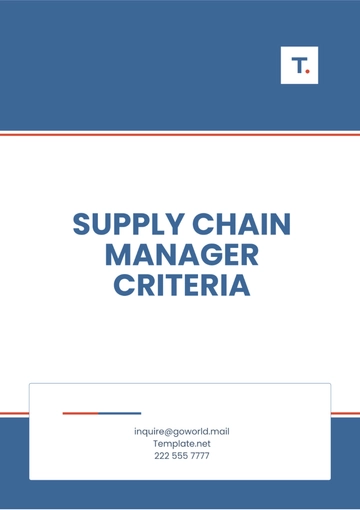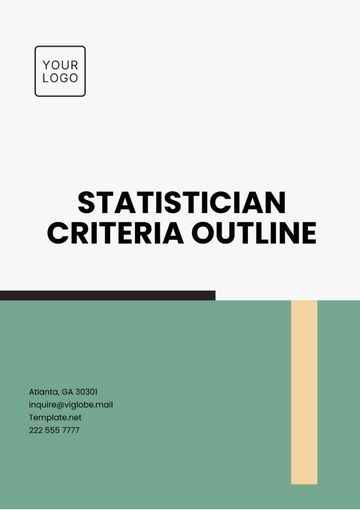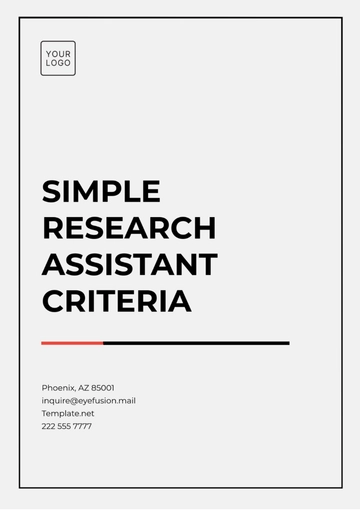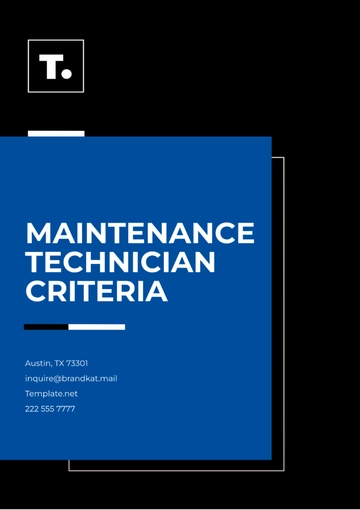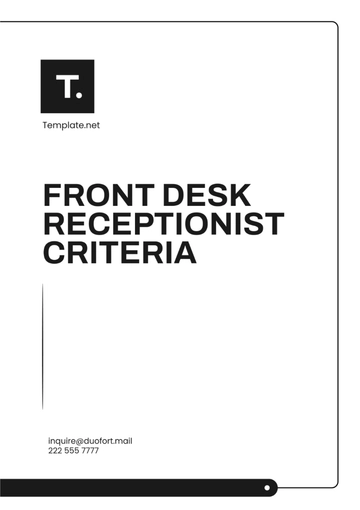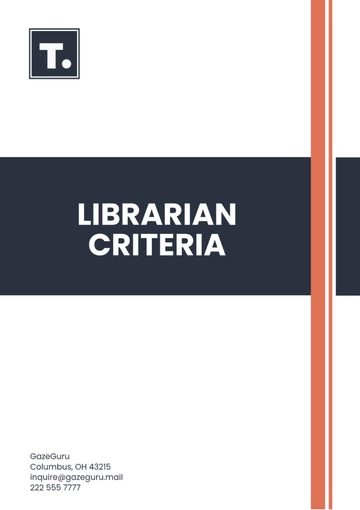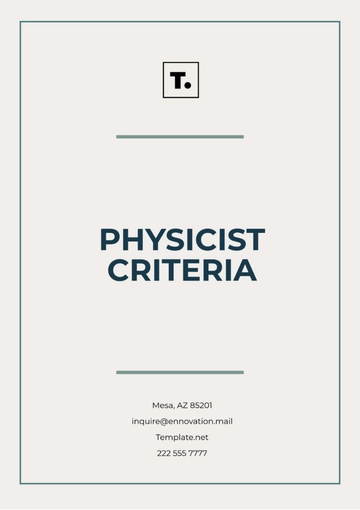Free Customer Success Manager Criteria
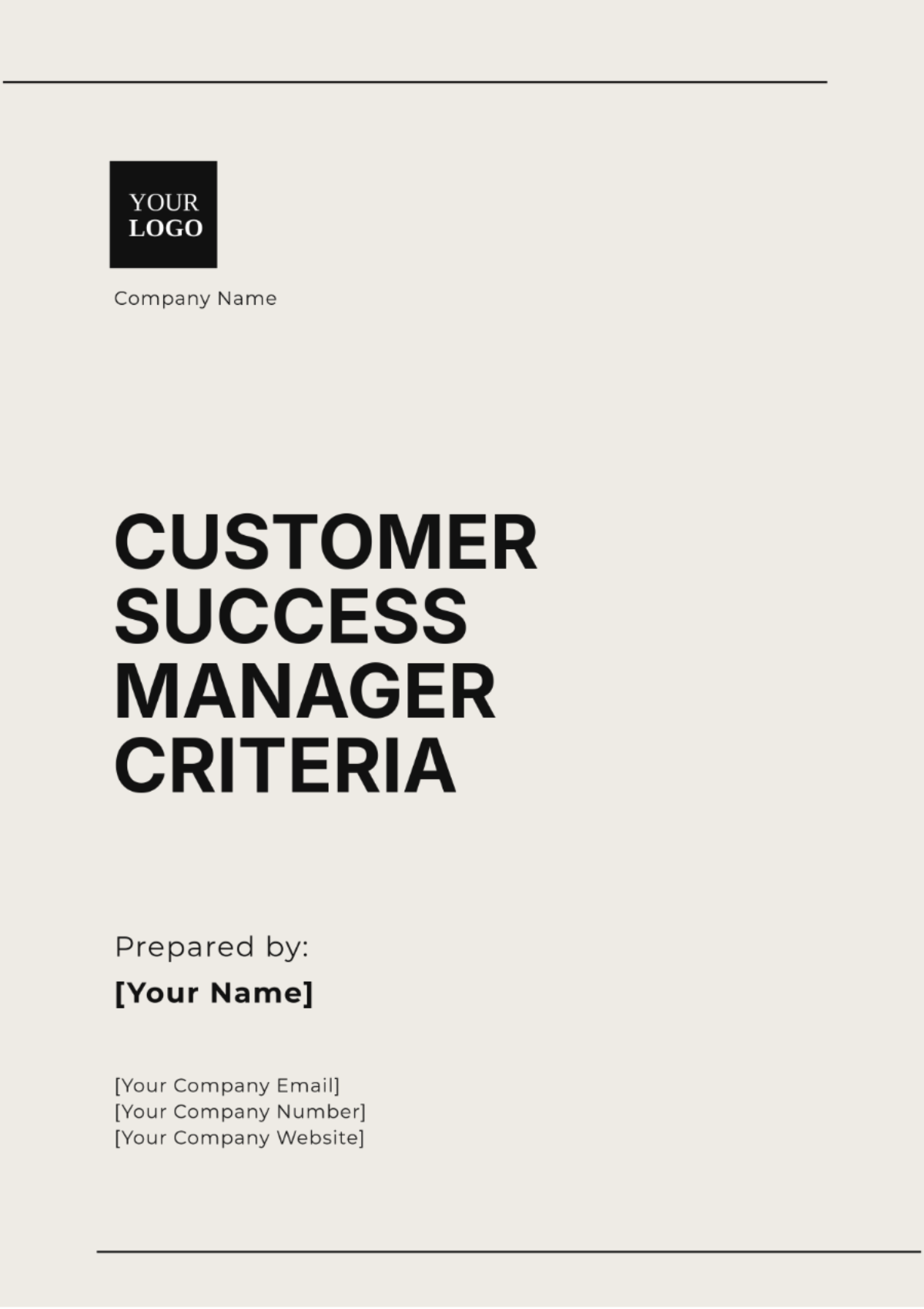
Prepared By: [YOUR NAME]
Date: April 11, 2050
Introduction
The role of a Customer Success Manager (CSM) is crucial in fostering positive relationships with clients, ensuring their success, and driving long-term satisfaction and retention. This document outlines the criteria for evaluating CSM performance, providing a structured framework to assess key areas of responsibility and effectiveness.
Purpose
The purpose of these criteria is to establish clear, measurable standards for evaluating the performance of Customer Success Managers. By defining these criteria, we aim to ensure that CSMs meet or exceed expectations in their roles, contributing to overall customer satisfaction and business success.
Scope
These criteria apply to all Customer Success Managers within the organization. They cover various aspects of the role, including customer engagement, problem-solving, and relationship management. The criteria are intended to provide a comprehensive evaluation framework to guide performance reviews and professional development.
Evaluation Criteria
Criteria | Description | Weight | Score (1-5) | Comments |
|---|---|---|---|---|
Customer Engagement | Measures the effectiveness in building and maintaining strong customer relationships. | 20% | ||
Proactive Problem Solving | Assesses the ability to anticipate and resolve issues before they escalate. | 20% | ||
Product Knowledge | Evaluates the depth of understanding of the company's products and services. | 15% | ||
Customer Feedback Management | Examines skills in collecting, analyzing, and acting on customer feedback. | 15% | ||
Account Growth and Retention | Looks at success in expanding accounts and ensuring long-term customer retention. | 20% | ||
Communication Skills | Measures clarity and effectiveness in both written and verbal communication. | 10% |
Scoring System
Score | Description |
|---|---|
1 | Poor - Does not meet expectations |
2 | Fair - Meets some expectations |
3 | Good - Meets expectations |
4 | Very Good - Exceeds expectations |
5 | Excellent - Far exceeds expectations |
Guidelines for Evaluation
Be Objective: Assess according to actions and results, rather than subjective views.
Use Specific Examples: Use specific examples for clear, fair evaluations.
Consider Context: Consider factors affecting the CSM's role.
- 100% Customizable, free editor
- Access 1 Million+ Templates, photo’s & graphics
- Download or share as a template
- Click and replace photos, graphics, text, backgrounds
- Resize, crop, AI write & more
- Access advanced editor
Enhance your recruitment with Template.net's Customer Success Manager Criteria Template. This editable and customizable template outlines key competencies like client relationship management, problem-solving, communication, and customer retention strategies. Editable in our AI Editor Tool, it provides a detailed and professional guide to assess candidates' abilities and select the most suitable Customer Success Manager for your team.


